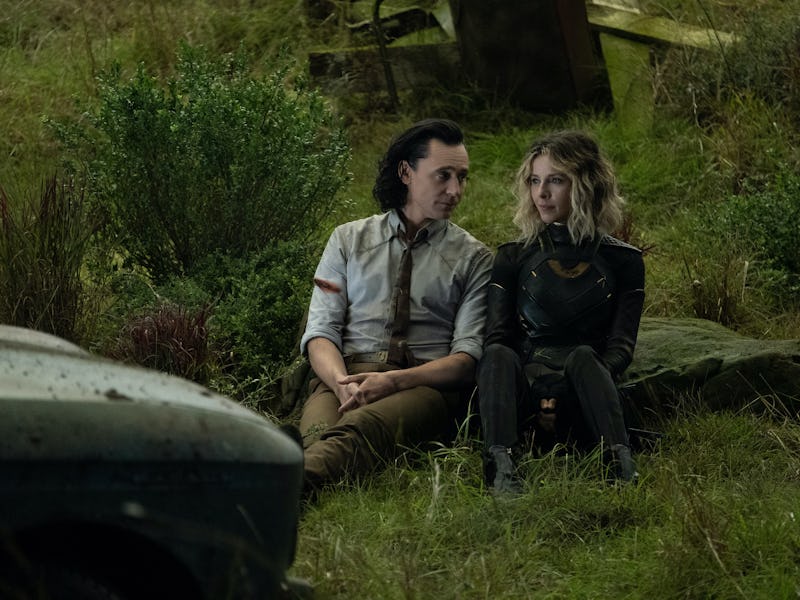Loki Season 2 could be the most surreal Marvel has ever been
Season 1 of Loki took notes from arthouse cinema, and now it could (and should) go further.

Loki changed everything we know about Marvel TV. Its predecessors, WandaVision and The Falcon and the Winter Soldier, played with the TV format, but ultimately ended in a giant battle indistinguishable from any Marvel movie. Loki, on the other hand, told a new kind of story.
The timeline was non-linear, the guest stars were all variants, and there was a Rennaissance Faire fight scene set to “Holding Out for a Hero.” Now, according to one of the show’s stars, Season 2 will be even wilder.
In an interview with Entertainment Tonight, Loki star Gugu Mbatha-Raw said fans of Loki Season 1 “are gonna be in for a real treat because the show is bolder and more surreal” in Season 2. What kind of adventures does that imply? Loki literally dismantled the time-space continuum, so where do you go from there?
It’s hard to imagine surrealism being any more prevalent in Loki than it already is. Surrealism, at least within the confines of the MCU, usually means blurring reality and the metaphysical. Wanda finding the colorful helicopter in the black-and-white world of her 1950s fantasy led to comparisons with David Lynch’s filmography. She-Hulk breaking the fourth wall and literally climbing out of the Disney+ home page brings to mind the end of Jodorowsky’s The Holy Mountain, where the director purposefully exposes the entire film crew.
WandaVision’s premise of being a fantasy created by Wanda made surrealist moments easy to portray.
Loki’s surrealism is evident from the beginning, but is especially visible in the Void. The Void brings to mind Soviet filmmaker Andrei Tarkovsky’s Stalker, about a man leading people through a mysterious area known as the Zone. Apparently, the Void was meant to be far stranger than we saw. In an interview with Cinemablend, Loki production designer Kasra Farahani explained its surrealist influences:
“Originally, at some point, I was proposing a far more Salvador Dali-esque, Dada-esque version of The Void, and it evolved over time. But those bird creatures and heads made it through from the Dada-esque version to the English moors version of The Void.”
The weird bird creatures of The Void came from a focus on Dadaism.
Maybe that’s how Loki will pursue surrealism in its second season — by exploring the literally surreal, dream-like, and Dali-esque. The “Dada-esque” descriptor is especially interesting here, as Dadaism was an art form that emerged in the 1920s as a response to the horrors of World War I. Artists began rejecting any form of logic or aesthetic to instead rely on the absurd, and if that’s not Loki’s ideal aesthetic, what is?
Dada is having a bit of a renaissance today, as all those strange logic-less memes and examples of “Gen Z humor” are rooted in it. Loki Season 2 embracing it could be the next step in its comeback.
Of course, there will still be a Marvel-style narrative. That’s not going anywhere. But, two years into Marvel’s grand streaming experiment, a pure arthouse series exploring the multiverse and the fragility of time just might be possible. Marvel needs to try something new, and Loki Season 2 is the perfect place to go wild.
Loki Season 1 is now streaming on Disney+.
INVERSE may receive a portion of sales if you subscribe to Disney+ through the link in this article.